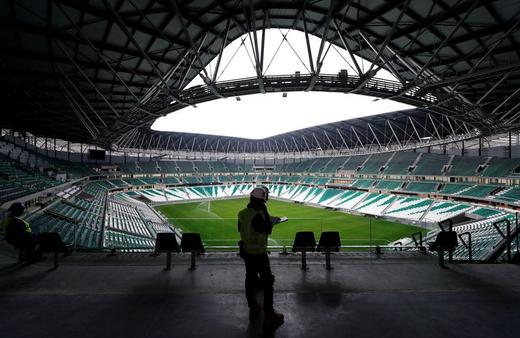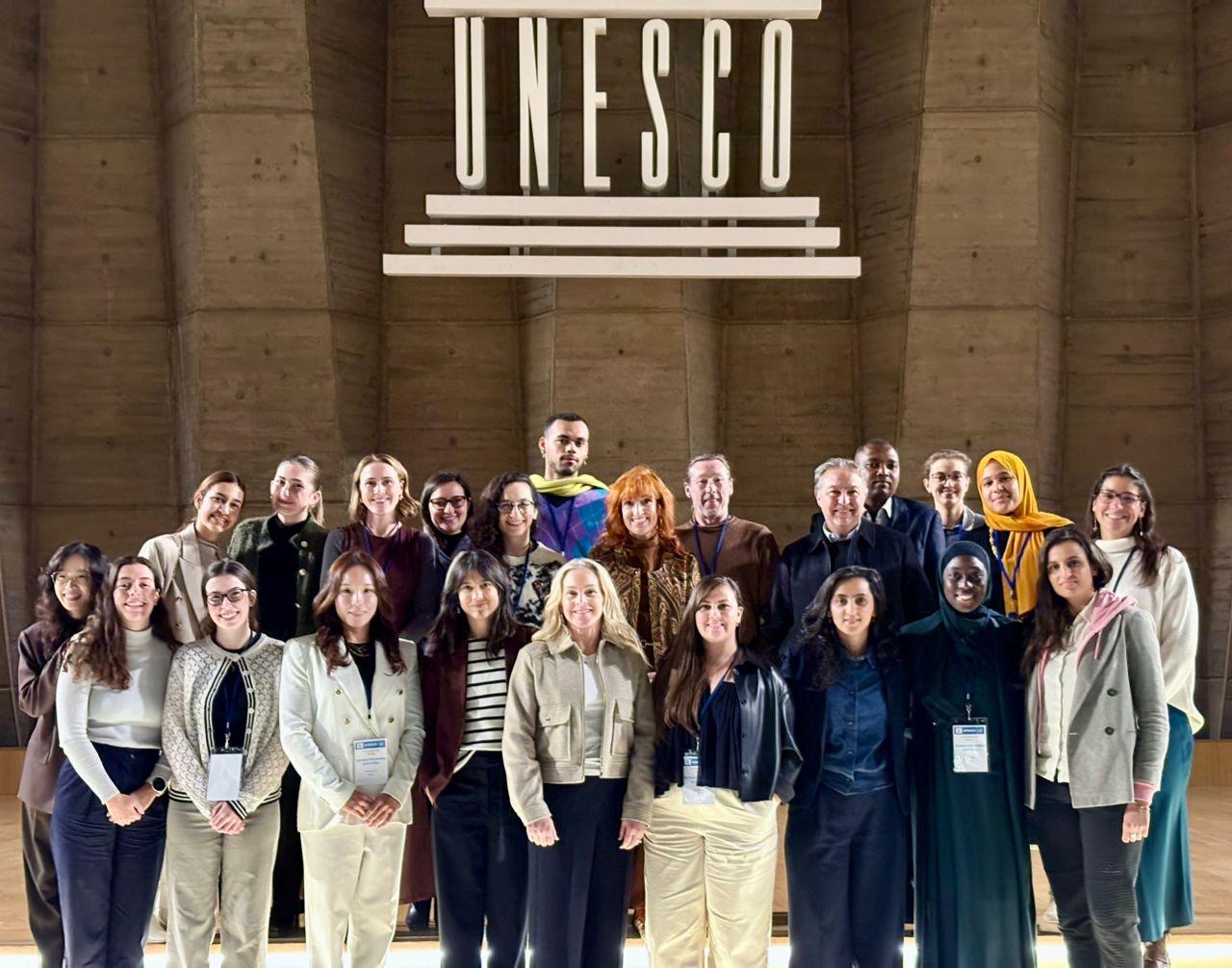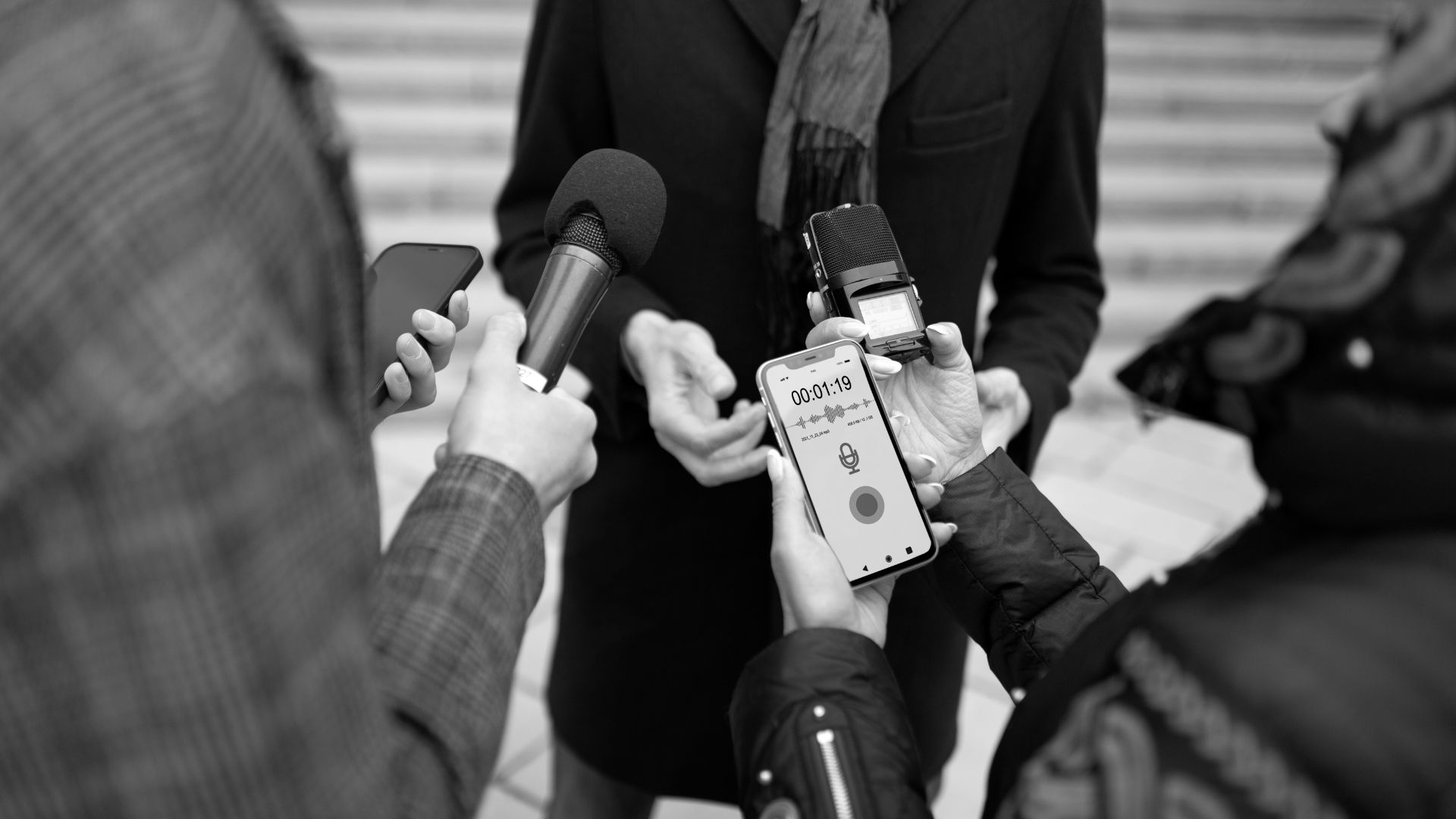In 2022, Qatar will host the FIFA Men’s World Cup – an historic moment as it will be the first time the tournament has ever been held in the Middle East. Scores of football stadiums and other facilities are being built for this event by migrant workers. Their working conditions are brutal, rife with coercion and exploitation, and sometimes even amount to bonded labour. Additionally, women are restricted by persistent male guardianship laws and lesbian, gay, bisexual, and transgender (LGBT+) individuals continue to face discrimination and censorship.
Migrant Workers and Labor Rights
An estimated two million migrant workers have been and will be involved in the preparation, construction, and hosting of the FIFA Men’s World Cup. Hailing mostly from Asia and Africa, they are building the stadiums, roads, and metro systems needed to facilitate the tens of thousands of people flooding the country to attend this massive event. When the contest kicks off, migrant workers will also be working in restaurants, hotels, transportation, security and other areas. They are integral to the success of the entire World Cup.
Due to the spotlight of the World Cup and international pressure, Qatar has undertaken significant reforms to its labour laws since it reached agreement at the International Labour Organization in November 2017. These include:
- Allowing migrant workers to leave the country or change jobs without their employer’s permission, effectively ending the “kafala” system;
- Establishing a non-discriminatory minimum wage, the first in any Gulf country;
- Establishing a labour dispute resolution system system;
- Providing for the establishment of joint workplace committees with workers electing their own representatives;
- Establishment of a proper system for employment contracts.
Much still needs to be done to embed these legal reforms and ensure that all migrant workers in Qatar benefit from them. Workers are still experiencing problems with payment of wages, difficulties accessing dispute resolution, poor living conditions and other forms of exploitation.
All those involved in the FIFA Men’s World Cup, inside Qatar and abroad, must play their part in bringing the benefits of the labour reforms to all workers, and ensuring a lasting positive legacy after the tournament has ended.
Anti-LGBT+ Laws Restrict Free Expression and Freedom
In Qatar, same-sex relations are illegal and widely condemned by societal and religious norms. Individuals accused could face years in jail, or theoretically in a state where sharia law is practiced, even the death penalty. Qatari publishing companies have censored news articles about sexual orientation and gender identity, and local newspapers featuring similar stories have faced vehement and dangerous backlash.
LGBT+ individuals in Qatar are thus forced to live in secret. Many live in fear – covering their true identities, desires, and opinions for the sake of their physical and emotional safety and wellbeing.
Qatar’s anti-LGBT+ laws and the dangerous conditions they create do not align with the human rights that FIFA claims to uphold at the Men’s World Cup. Though Qatar has committed to ensuring a safe environment for World Cup visitors who identify as LGBT+ and allowing rainbow flags in the stadiums, the reality in Qatar makes the possibility of a rights-respecting World Cup unlikely. Even more uncertain is whether these commitments will lead to any lasting change after the competition ends.
Male Guardianship Laws Restrict Women’s Agency
Women in Qatar have achieved significant progress in human rights, especially in education – there are now more women graduating from college than men. However, women continue to face discrimination and restrictive male guardianship laws that keep freedom and agency out of their reach.
Qatari male guardianship laws and practices require a woman to obtain permission from her guardian (her father, husband, or other male relative) to:
- Marry
- Obtain a government education scholarship
- Take a government job
- Access some reproductive health care
Furthermore, women are not allowed to act as guardians of their own children – meaning they can’t make choices about their children’s lives or wellbeing. Sex outside of marriage, or zina, is also illegal and can carry sentences of imprisonment, flogging, or death. These laws disproprotiantely impact women, because women who signs of pregnancy or report rape can be accused of and charged with having had extramarital sex.
The Solution: Collective Action
As the organizer of the 2022 Men’s World Cup in Qatar, FIFA has a responsibility to ensure this competition does not cause or contribute to human rights abuses – either in the preparation for or during the tournament itself. It must also seek to prevent, mitigate, and provide solutions for negative human rights impacts that are linked to their operations, even if they have not directly contributed. This includes ensuring the wellbeing and rights of migrant workers in construction, hospitality, and domestic services, as well as the women and LGBT+ individuals attending and working at the competition.
Learn More
Explore these resources to learn more about Qatar’s human rights abuses and the FIFA Men’s World Cup Qatar 2022 – and stay tuned for additional research, news, and campaigns to get involved.
- ITUC: Qatar 2022 World Cup will honour workers’ rights as govt. commits to timetable of labour reforms that end ‘kafala’
- Migrant Workers Rights with Two Years to the Qatar 2022 World Cup: Reality Check
- Qatar: Letter from Amnesty International to Mr. Gianni Infantino, FIFA President
- Migrant Workers and the Qatar World Cup
- “Everything I Have to Do is Tied to a Man”: Women and Qatar’s Male Guardianship Rules
- Qatar: Events of 2020
- World Cup hosts Qatar raise the rainbow flag even as LGBT+ community is forced to live a double life






